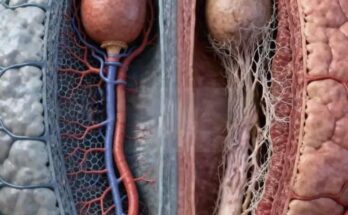Chia seeds, often referred to as a “superfood,” have become a popular addition to many diets worldwide due to their impressive nutritional profile and potential health benefits. Tiny yet powerful, these seeds have been a staple in ancient cultures for centuries. They are packed with essential nutrients and offer a wide range of health benefits that make them a must-have in any healthy eating plan. Let’s explore the incredible health benefits of chia seeds and why you should consider adding them to your daily diet.

1. Nutrient-Dense Powerhouse
Chia seeds are incredibly nutrient-dense, which means they provide a high concentration of essential nutrients with very few calories. Just two tablespoons (about 28 grams) of chia seeds contain:
- Protein: 4 grams
- Fiber: 11 grams (which is more than a third of the daily recommended intake for women)
- Omega-3 fatty acids: 5 grams
- Calcium: 18% of the recommended daily value (DV)
- Magnesium: 30% of the DV
- Iron: 8% of the DV
With such a potent combination of macronutrients and micronutrients, chia seeds are an excellent choice for anyone looking to optimize their nutrition. They’re especially beneficial for vegetarians and vegans who may find it difficult to obtain certain nutrients, such as omega-3s and protein, from plant-based sources.
2. Rich Source of Omega-3 Fatty Acids
One of the standout features of chia seeds is their abundance of omega-3 fatty acids. These essential fats are crucial for heart health, brain function, and reducing inflammation in the body. Unlike other plant-based sources of omega-3s, chia seeds contain a type of omega-3 known as alpha-linolenic acid (ALA), which the body can convert into other forms of omega-3s. Consuming chia seeds regularly can help lower your risk of cardiovascular disease by improving cholesterol levels, reducing triglycerides, and promoting healthy blood circulation.
3. Supports Digestive Health

Chia seeds are packed with fiber, which is vital for maintaining digestive health. The soluble fiber in chia seeds absorbs water and forms a gel-like substance, which can help promote regular bowel movements and prevent constipation. By increasing fiber intake, chia seeds also support the growth of beneficial gut bacteria, improving the overall health of your digestive system.
Furthermore, fiber plays a key role in regulating blood sugar levels by slowing down the absorption of sugar into the bloodstream. This can be especially beneficial for individuals with diabetes or those looking to manage their blood sugar levels naturally.
4. Aids in Weight Loss and Appetite Control
If you’re trying to lose weight or maintain a healthy weight, chia seeds can be a valuable addition to your diet. Their high fiber content, particularly the soluble fiber, helps you feel fuller for longer periods by absorbing liquid and expanding in your stomach. This feeling of fullness reduces your overall appetite and helps prevent overeating.
Additionally, chia seeds have a low glycemic index, meaning they don’t cause rapid spikes in blood sugar. This makes them an ideal food for controlling hunger and preventing the energy crashes that often lead to unhealthy snacking.
5. Promotes Heart Health
Heart disease is a leading cause of death worldwide, but incorporating chia seeds into your diet may help reduce the risk of heart disease. The omega-3 fatty acids found in chia seeds have been shown to help lower blood pressure, reduce cholesterol levels, and prevent the formation of blood clots. All of these factors contribute to a healthier cardiovascular system.
Moreover, chia seeds are an excellent source of antioxidants, which can help protect the heart from oxidative stress and inflammation. These antioxidants help fight free radicals that damage cells and contribute to chronic diseases like heart disease, cancer, and diabetes.
6. Boosts Bone Health

Chia seeds are an excellent plant-based source of calcium, magnesium, and phosphorus—all of which are essential for maintaining strong, healthy bones. In fact, just two tablespoons of chia seeds provide about 18% of the recommended daily intake of calcium, which is important for bone density and strength.
Magnesium, another key nutrient in chia seeds, plays a vital role in bone health by helping the body absorb calcium and promoting healthy bone mineralization. Regular consumption of chia seeds can support optimal bone health and may help prevent osteoporosis, especially in individuals who don’t consume enough dairy products.
7. Supports Skin Health and Aging
Chia seeds are rich in antioxidants, which play a crucial role in protecting the skin from oxidative stress caused by environmental factors like pollution and UV radiation. The antioxidants in chia seeds help neutralize free radicals, which are responsible for the aging process and the development of fine lines and wrinkles.
Additionally, the omega-3 fatty acids in chia seeds can help improve skin hydration, reducing the appearance of dry, flaky skin. By nourishing your skin from the inside out, chia seeds contribute to a healthy, glowing complexion and may help prevent skin conditions like eczema and acne.
8. Improves Mental Clarity and Focus
Chia seeds are not only good for your body but also your brain. The omega-3 fatty acids, in particular, have been linked to improved cognitive function, including better memory, focus, and mental clarity. Omega-3s are essential for the brain’s structure and function and may even help reduce the risk of neurodegenerative diseases like Alzheimer’s and Parkinson’s.
Additionally, chia seeds are a good source of magnesium, which is important for regulating mood and reducing symptoms of anxiety and depression. Including chia seeds in your diet can promote better mental health and improve your ability to concentrate and think clearly.
9. Versatile and Easy to Incorporate into Your Diet
One of the best things about chia seeds is how easy they are to incorporate into your daily routine. You can add them to smoothies, yogurt, oatmeal, or salads. You can also make chia pudding by combining chia seeds with milk or a dairy-free alternative and letting them soak overnight to create a creamy, nutrient-packed treat.
Chia seeds are also great for baking, as they can be used to replace eggs in vegan recipes or added to muffins, granola bars, and other baked goods for a nutritional boost. With their mild, nutty flavor, chia seeds complement a wide variety of dishes, making them a convenient and tasty addition to your meals.
Conclusion
Chia seeds are undoubtedly one of the most nutritious and versatile foods you can add to your diet. Packed with essential nutrients like omega-3 fatty acids, fiber, protein, and antioxidants, they offer a wide range of health benefits, from improved digestion and heart health to enhanced brain function and skin appearance. Whether you’re looking to lose weight, boost your energy levels, or support overall health, chia seeds are a simple and effective way to nourish your body. Try adding chia seeds to your daily routine and experience their incredible benefits for yourself!



